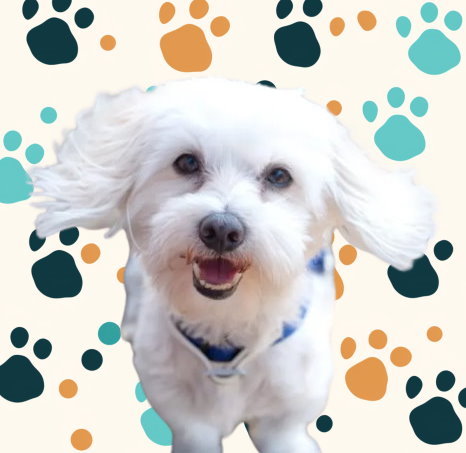Welcome to Dog Training Newbies !
Welcome to Dog Training Newbies !

Maltese dogs are known for their affectionate nature, loyalty, and charm. These small and loving companions often form strong bonds with their owners, making them prone to experiencing separation anxiety when left alone. Understanding the causes of separation anxiety in Maltese dogs and implementing effective solutions is crucial for ensuring their well-being and happiness.
CAUSES OF SEPARATION ANXIETY IN MALTESE DOGS:
Separation anxiety in Maltese dogs can manifest in various ways, including excessive barking, destructive behavior, house soiling, and even attempts to escape. This anxiety stems from the fear of being separated from their owners and can be triggered by several factors. Maltese dogs, in particular, may be more prone to separation anxiety due to their sensitive and affectionate nature.
- Bonding with Owners: Maltese dogs are known for forming deep bonds with their owners and becoming highly attached. When left alone, they may experience distress and anxiety due to the separation from their favorite humans.
- Changes in Routine: Any changes in the daily routine of a Maltese, such as a sudden increase in time spent alone, can trigger feelings of insecurity and anxiety. Dogs thrive on consistency and predictability in their environment.
- Past Trauma: Maltese dogs who have experienced past trauma, such as being abandoned or mistreated, may be more susceptible to separation anxiety. These dogs may fear being left alone and may exhibit anxious behaviors as a result.
- Lack of Socialization: Proper socialization plays a crucial role in a dog's development and emotional well-being. Maltese dogs who have not been adequately socialized may struggle with being alone and may feel anxious in unfamiliar situations.


SOLUTIONS FOR MANAGING SEPARATION ANXIETY IN MALTESE DOGS:
Addressing separation anxiety in Maltese dogs requires patience, understanding, and a proactive approach to help them feel more secure and comfortable when left alone. By implementing the following solutions, you can help your Maltese overcome their anxiety and build their confidence:
- Gradual Desensitization: Start by gradually acclimating your Maltese to being alone for short periods. Leave the house for brief intervals and gradually increase the time spent away to help them adjust to your absence.
- Create a Safe Environment: Provide your Maltese with a comfortable and secure space where they can relax in your absence.
This could be a cozy crate, a designated room, or an area with their favorite toys and bedding.
- Establish a Routine: Establish a consistent daily routine for your Maltese to provide structure and predictability. Regular feeding times, exercise, and play sessions can help reduce anxiety and create a sense of stability.
- Interactive Toys and Puzzles: Keep your Maltese mentally stimulated and engaged by providing interactive toys and puzzles that can help alleviate boredom and anxiety when alone.
- Positive Reinforcement: Use positive reinforcement techniques to reward calm and relaxed behavior when your Maltese is alone. Praise, treats, and affection can help reinforce positive associations with being by themselves.
- Training and Socialization: Invest time in training your Maltese and ensuring they are well-socialized to build their confidence and independence. Enroll in obedience classes or seek the guidance of a professional trainer if needed.
- Seek Professional Help: If your Maltese's separation anxiety persists despite your efforts, consult with a veterinarian or a certified animal behaviorist for additional guidance and support. They can provide tailored strategies and recommendations to help manage your dog's anxiety effectively.
Separation anxiety in Maltese dogs can be a challenging issue to manage, but with patience, consistency, and understanding, it is possible to help your furry companion feel more secure and comfortable when left alone. By identifying the underlying causes of your Maltese's anxiety and implementing proactive solutions, you can support their emotional well-being and strengthen the bond you share. Remember that every dog is unique, so be patient and persistent in your efforts to help your Maltese overcome their separation anxiety and thrive in your absence.